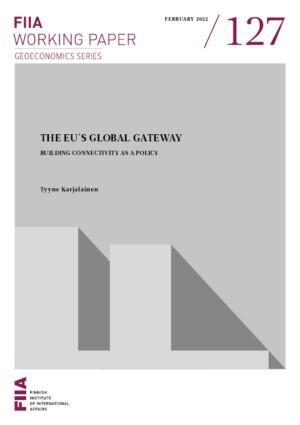The European Union’s Global Gateway, adopted in December 2021, marks the continuation of efforts by numerous international actors to limit China’s increasing influence in global infrastructure diplomacy. This FIIA Working Paper analyzes the role of the EU’s connectivity agenda in this crowded market and positions the Global Gateway in the context of EU external relations. Based on a conceptual and policy analysis, and a review of analyst debate and cross-cutting literature, the paper makes three key observations.
Firstly, the EU institutions, sometimes siloed, as well as the member states, divided in their China politics, have managed to agree on a comprehensive policy programme which – on paper – connects existing economic tools to a foreign policy vision of the Union. Secondly, successful delivery of the high-politics yet hands-on programme will, however, require connecting diplomatic and technical expertise, and public and private financing. Thirdly, the normative agenda embedded in the Gateway builds on a conventional role for the EU as a global actor, but can be expected to face challenges with its simultaneous goal of achieving a comprehensive reach.


